Session Formats
The following icons, presented with each session description, will cue you as to their format — whether an information-rich lecture presentation or a Q&A where you can ask questions on a particular care-giving topic of interest:

Audience
Each session description also includes the following symbols to help you decide which sessions are best suited to your needs:

Prerequisites
Some of our sessions have a prerequisite. Our advanced sessions usually require completion of a particular course (or courses) in order to attend. Other sessions may require watching or listening to content that is available online. If this is the case for you, after you register we will send you any links or files needed.
Saturday Session Descriptions
8:00-9:00 amRegistration and ConnectionThe registration desk will open at 8:00 am. Pick up your name badge and conference materials, then enjoy connecting with other attendees before getting settled in the ballroom. | |
9:00-10:15 amOpening Address – Making Sense of KidsDr. Gordon NeufeldOur need for insight as parents and teachers has never been greater. Ironically, the information age has flooded us with information and simultaneously blinded us to its meaning. Knowledge without insight can be dangerous. For over a century now, social scientists have applied themselves to making sense of adults with the assumption that the dynamics would be the same for children. Paradoxically, it turns out that the key to making sense of ourselves lies in making sense of our children. Even more importantly, making sense of kids enables us to become the parents and teachers our children need. The better we see, the less reactive and more effective we are. Insight tends to bring out the best in us. From his 45 years of experience, Dr. Neufeld will share the insights he believes are indispensable with regards to children. | |
10:15-10:35 amMorning BreakRefill your water bottles, connect with other attendees, and make your way to your morning workshop. | |
10:35 am – 11:50 amSessions A | |
A1 – Preparation for ParenthoodDr. Gordon NeufeldHow does one best prepare for our most important task – that of raising a child? What too often gets lost in the urgency of the moment, as well as in the flood of today’s details, is what the challenge is all about – transitioning the baby from the physical womb to the attachment womb where healthy development can continue to take place. Nothing could be more important to keep in mind. In this session, Dr. Neufeld will help parents-to-be prepare to become the ANSWER their baby will be looking for.
|  |
A2 – Making Sense of Preschoolers: Five Things Preschoolers Would Like You to Know About ThemDr. Deborah MacNamaraYoung children are some of the most misunderstood people around. Their unique personality can baffle adults, with tantrums that come out of nowhere to resistance that locks in and leaves you at a standstill. While preschoolers possess both beauty and beast-like behaviour, they really wish you wouldn’t take it so personally nor view them as a problem to be fixed. This presentation will focus on five things young kids would like you to know about them and to assure you that nature has a plan for their development.
|  |
A3 – Making Sense of the Alpha Complex | 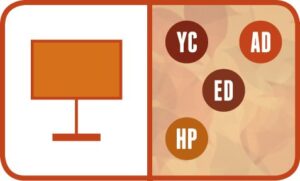 |
A4 – Q&A for Intensive II Students & AlumniTerry Warburton, Genevieve SchreierAn opportunity for interaction and discussion around Intensive II themes, outstanding questions, the recent course revision (2016), and further study doors opened by completing this prerequisite.
|  |
A5 – You’re Not the Boss of Me: Making Sense of CounterwillColleen DrobotA common dynamic that is often frustrating to parents and potentially erodes the parent/child relationship is when a child balks and defies us. It can be as subtle as ignoring our requests or as blatant as telling us “You’re not the boss of me!” When we ask them to clean up, get ready for school, go to bed, come to the table, be kind to their sibling…we may be met with a “No!” or they may in fact do the opposite. Dr. Neufeld describes this oppositional behaviour as counterwill. Although the reaction is quite normal and even healthy in certain circumstances, its manifestations and impact can be highly disruptive, making life difficult for parents. We will discuss the meaning of this deep-rooted instinct and the dynamics that control its existence and expression. Colleen will provide strategies to help adults reduce the effects of oppositional behaviour and gain cooperation with children.
|  |
A6 – Making Sense of the BrainEva de GosztonyiDr. Neufeld references various areas of the brain during his presentations as his paradigm is significantly informed by neuroscience and the current research in this area. This brief session will present an overview of the most important areas of the brain; their general functions; their relation to each other, and their role in the developmental approach of the Neufeld paradigm. Eva will also reference some of the most current research that is pertinent to our understanding of how the brain is affected by stress and trauma. Making sense of the brain helps us to make sense of our children as we learn more about the Neufeld developmental paradigm.
|  |
A7 – Making Sense of AdolescenceChristie MackieCrossing the bridge from childhood to adulthood has never been so daunting. The time of adolescence is longer than ever and yet society today offers little support in understanding or facilitating this transition. What is meant to happen? What is nature’s purpose and design? Discussion will center on understanding the maturing dynamics occurring for the adolescent and the tools to help them through this journey. This presentation is suitable for participants with tweens and teens.
| 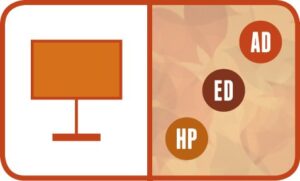 |
A8 – Making Sense of Emotion and the Messy, Marvelous Master PlanMichele MaurerFor hundreds of years, emotion was considered a nuisance. The belief in the rational control of the emotions led to a widespread habit of repressing emotions. Parenting and education practices have been heavily influenced by this 17th Century view. For over 20 years, science has known otherwise – that in fact emotion is pivotal to brain development, even the development of reason. Yet, we continue to care for kids using strategies that misunderstand, disregard or stifle emotional expression. Healthy emotional development is the key to maturation and the natural solution to discipline issues, temper problems, and a host of mental health concerns. Gain insights into the nature of emotion, the five steps to emotional well-being, and the role of adults in fostering emotional health in the children we care for.
|  |
A9 – Making Sense of ResilienceHeather FergusonOne of the most challenging and crucial questions of our time is why some bounce back from adversity, seemingly unscathed, while others fall apart and become emotionally distraught and dysfunctional. Resilience is a remarkable construct – an overarching metaphor that touches on the arenas of stress, neural plasticity, emotional health, recovery, healing, mental illness, adaptation, defendedness, and therapy. Fresh understandings are coming to the fore as we glean more working knowledge of the brain as well as the nature of emotion. The implications for working with children are profound, never mind the implications for dealing with stress in our own lives and in the lives of our loved ones. It turns out that emotional readiness for adversity is just as important as physical readiness for a natural disaster. Heather will focus on ways to restore the ability to bounce back from whatever may befall.
|  |
A10 – Making Sense of Blended FamiliesJodi BergmanThe family structure is rapidly changing and the process of bringing people together is complex. Not all stepfamilies are alike, and true integration involves respectfully combining different histories, traditions, personalities, and preferences. Insight into the dynamics of attachment and vulnerability and how they are at play in these new relationships can help us navigate the maze, and offer us an opportunity to understand and act from relationship, not role. Through years of study and personal experience, Jodi will help make sense of the dynamics of an integrated family and discuss the key elements that need to be present to support growing a family that is thriving, not just surviving.
| 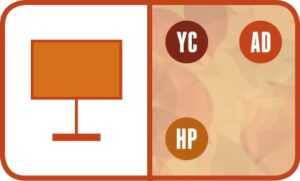 |
A11 – Hold on to Your University-Bound KidsDavid RobertsonRemember the day when your child was born? Remember that first diaper change? And then in a flash, these precious little ones are leaving home on their post-secondary adventure. Now, what is the caring responsible parent to do? It’s a very mixed time. For parents and their newly fledging young adults, what does it mean to hold on to them, to foster the right conditions for their maturation and growth, and to love them into their expression of adulthood? In this session we’ll walk around the mixed emotions and the dance of letting go and holding on. We’ll come alongside the sometimes overly quiet house at night and the walk past empty bedrooms. We’ll create room for deepening the relationship with our post-secondary kids and set about welcoming the new life that comes with the joys and challenges of supporting them as they engage and explore the world that awaits their passion and potential.
|  |
11:50-1:00 pmLunch (Independently or Optional Add-On)For an additional charge of $26, you may pre-order a buffet lunch with your conference registration – an Indian buffet that includes some vegan/dairy-free and Paleo options. If you have specific dietary considerations, you may want to bring your own lunch. There are also a handful of restaurants near the hotel, only a short drive away. Vancouver Kidsbooks will be on site with a conference bookstore, which you’re welcome to peruse during this time, too. | |
1:00-2:15 pmSessions B | |
B1 – Making Sense of GraceDr. Gordon NeufeldThe construct of grace, as it has come down to us, seems to have originated in the attempt of theologians to explain the way a loving, transcendent deity relates to his people. Grace is associated with a relational invitation that is above and beyond expectations, out of the ordinary, certainly more than deserved, and originating in the agency of the giver. It has to do with the act of defining and creating the relational context in which the personal growth of one’s dependents can take place. The construct of grace couldn’t be a better fit with what developmental science has discovered as the optimal conditions conducive for growth and development. In this session, Dr. Neufeld will expand on the construct of grace as it applies to parenting.
| 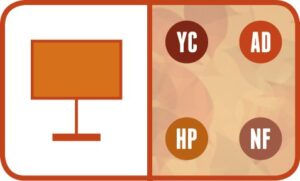 |
B2 – Making Sense of Addiction: Looking for Love in All the Wrong PlacesDeborah MacNamaraHumans hunger for connection but this makes us vulnerable to experiencing lack and loss when we do not feel close to our loved ones. What happens when we feel the sting of loss and separation? How can we mend a broken heart and what are the signs that we are working for love or substituting things and people instead of feeling the voids in our life? While we can love deeply, we cannot possess another, and love must be freely given for it to be the most fulfilling. This presentation will examine the roots of neurosis and addiction through a relational and developmental lens.
|  |
B3 – Making Sense of Anxiety in ChildrenPatti DrobotThere is currently an epidemic of anxiety affecting children of all ages. Anxiety can take many forms including panic, phobias, sleep issues, physical illnesses as well as a host of perplexing behaviours including seeking attention and avoidance. Today’s world can create many challenges for children with school pressures, peer interactions, family dynamics, negative self-image, perfectionism and many other stressors that impede a child’s ability to play, learn and grow. Through stories, examples and theory, Patti will suggest ways in which parents can understand anxiety and help support their children to find psychological and emotional rest in their world. This workshop is appropriate for parents and professionals working with all ages of children.
|  |
B4 – Becoming the Parent Your Child Needs: Ten Keys to Self-Care That Will Support You to Be Your Child’s Best BetColleen DrobotWe all want our children to grow up to be resilient, passionate, caring, and emotionally healthy. Through studying Dr. Neufeld’s theory and approach, we have learned that we need to be in charge of our children, find patience through mixed feelings, and parent in the context of connection thereby cultivating a deep attachment with our children. This kind of parenting can be very challenging and at times, calls for the greatest maturity. In a frenetic, exhausting world where we often lack a village to help us, parenting can seem like a daunting journey. How can parents resource themselves so they cannot only survive, but thrive? How can they become the parent their children need? As a family therapist and parent, Colleen will share ten vital keys that have kept her afloat and resourced many of her clients who are committed to this approach.
|  |
B5 – Rest, Play, Learn: Q&A on Home EducationTamara Strijack, Jennifer GehmanHome education is a growing world-wide alternative to schooling, yet the main benefits of home-based education are not well understood. How can learning at home meet the essential needs of the child, and what are factors to keep in mind whether you are embarking on, or continuing on, this journey? Come to this Q & A workshop, where veteran homeschoolers Tamara and Jennifer will lead a discussion and share their stories and experiences.
|  |
B6 – Making Sense of AggressionDenise Findlay, Eva de GosztonyiAggression is one of the oldest and most challenging of human problems. Indications are, that in children at least, it is on the rise. What grabs our attention are the more violating acts of aggression but what is truly alarming is the ground swell of attacking energy within and between our kids that erupts in their interaction, their music, their language, their play, their games and their fantasies. It is the rare parent or teacher that does not encounter aggression in one form or another — be it tantrums, tempers, fits, abrasiveness, abusive language, rude gestures, hostility, racism, taunts, put-downs, bullying, fighting, shaming, belittling, name calling, vicarious enjoyment of violence or the self-attacking forms of self-deprecation, death wishes and self-harm. Such children are unable to benefit from traditional methods of behaviour management. The key to making sense of aggression is to get past the violating behaviour to the emotional experience of the child and to what is missing in the child’s processing or functioning. It is only as the roots of the problem are dealt with that aggression can be effectively addressed.
|  |
B7 – Making Sense of Emotional Expression in SchoolSpecial Presenters Wanda Christensen, Jackie HannEmotions are like waves – they need to MOVE! Children and teens are stirred by a wide range of emotions daily. Emotional expression is often loud, boisterous and filled with a range of emotions being expressed. How can we provide a warm invitation for this energy to be expressed without repercussion? Providing space and opportunity for expression is not only key but essential for healthy emotional development. How can we orchestrate their environments to help them feel safe and supported to express all that is within them? Each child is clearly their own person; creativity is key! This information is applicable to children of all ages, both at home and in the school setting. |  |
B8 – Making Sense of PlayGenevieve SchreierIn this busy, demanding, pressure-filled world, play is rarely given much attention. For all but the very young, play is perceived as something of a luxury. Though we seem to have an intuitive sense that play is an important component of early childhood, it becomes relegated to the sidelines as growing up gets underway. Who has time for play when urgency is all around us? The trouble with the urgent, however, is that it risks eclipsing the important. It turns out that true play is absolutely vital to the unfolding of human potential. Without understanding the depth and potential that lies within this kind of play, we risk losing the room for it entirely in our society. In this presentation, Genevieve will make a case for the necessity of play and explore carving out the room and space for it – not only in our children’s lives, but in our own lives as well.
|  |
B9 – Making Sense of MarriageHeather FergusonYou strive to Hold On to Your Kids, but how do you hold on to your marriage in the midst of raising them? This session will explore some of the common challenges and offer a lens of looking at marriage based on the Neufeld approach. How does attachment theory and developmental science inform us about creating and sustaining meaningful long-term relationships? We will explore the characteristics of a healthy, resilient marriage, and how this insight can bring new hope and understanding to this most significant relationship.
|  |
B10 – Q&A on AdolescenceJodi Bergman, Robin Brooks-SherriffCrossing the bridge from childhood to adulthood can be such a challenging time – for adolescents and for those caring for them. Defenses and peer orientation can often get in the way. How can we come alongside our adolescents as caring adults? How can we help them navigate questions of friendship and sexuality? How can we make room for them to discover who they are in the midst of all the physical and emotional changes and the increasing demands of our digital world? In this question and answer workshop, please bring your questions as parents, grandparents, teachers, and/or helping professionals. Join Jodi and Robin as they share stories and insight from their roles as parents, as well as their experiences teaching adolescent development and attachment to teens themselves.
|  |
B11 – Making Sense of Therapy Intensive: A Presentation of Highlights, Aha! Moments, and New InsightsDarlene Denis-FriskeIn January 2018, Darlene attended the newest Advanced Intensive on Making Sense of Therapy: The Art and Science of Healing. In it, Dr. Neufeld explores healing through the lens of an attachment-informed developmental approach, and discusses concerns that current psychotherapy practices (of which there are many) seem to be increasingly divorced from the science of relationship, emotion, and human development. Join Darlene as she shares a summary of highlights and insights gained, reflecting on key themes and pivotal moments in processing Dr. Neufeld’s discussion.
| 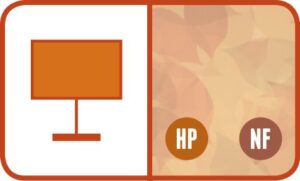 |
2:15-2:30 pmAfternoon Break (15 minutes)Refill your water bottles, connect with other attendees, and make your way to your next session. Vancouver Kidsbooks will be on site with a conference bookstore to peruse, too. | |
2:30-3:45 pmSessions C | |
C1 – Making Sense of the Digital World: Plugged In, Tuned Out and Keeping Your Kids ConnectedMichele MaurerFamily time has dropped by a third since the digital age; a sharp drop after several decades of stability. Ninety-four percent of teens are online with a mobile device daily; twenty-four percent are online “almost constantly.” Gain insight about the five problems that digital devices “solve” and make sense of screen time fixation. Re-discover nature’s solutions you already knew and why we need them now more than ever. Learn strategies for keeping connected with kids in a digital age. This workshop is suitable for parents, grandparents, teachers, counsellors, and childcare providers.
|  |
C2 – Making Sense of Emotional Defense: How the Brain Protects Itself Against VulnerabilityDeborah MacNamaraNeuroscience has paved the way to support what Freud once postured – we do have an emotional subconscience that operates out of direct awareness. This is not a mistake but part of the brain’s sophisticated capacity to defend and inhibit emotional awareness to serve survival needs. How does the brain inhibit vulnerable emotion? How can we create the conditions for the defenses to come down? How can we become conscious of defenses operating when they are meant to blind us in the first place? We will look to developmental science to answer these puzzling emotional questions.
|  |
C3 – Making Sense of Sensitivity in Children |  |
C4 – The Counterwill Storm: Making Sense of Teen ResistanceDarlene Denis-FriskeIncreased resistance in the teenage years is a reality of the adolescent journey. There are very good reasons that we see increased counterwill emerge in this season of life, rooted in factors of growth and healthy psychological development. At the same time, resistance can become pronounced, stuck, and systemic for the teenager especially if we, as parents and teachers, don’t have a sense of how to work with the counterwill instinct. This presentation will focus on making sense of resistance in the context of adolescence, and will consider the differentiation between healthy counterwill and what Dr. Neufeld describes as the ’empty fortress syndrome’.
|  |
C5 – Playful Therapy: Understanding the Power of Play in our Homes, Classrooms and Therapeutic SettingsTamara Strijack, Hannah BeachFor many of us when we hear the word ‘play’ we think of young children and toys. Growing numbers of us have replaced play with entertainment. We are now seeing the emotional side effects of the loss of play in the lives of our children and adolescents. This presentation will explore the many ways we play and the broader aspects of how play provides for natural therapy in our lives. We will address the role of play in our classrooms, homes and therapeutic settings. We will discuss strategies for how to find play when play has been lost and look at ways that we can set up our environments to support children’s natural inclination towards expressive play. Join Tamara and Hannah as they share insights into the extraordinary power of play and how it offers essential emotional outlets and builds resilience.
|  |
C6 – Making Sense of BulliesEva de GosztonyiWe all want bullies to stop hurting other children. A lot of resources have been poured into anti-bullying programmes but sadly, not much has changed as a result. Most prevailing approaches to this problem assume that bullying is either a learned behaviour or the result of a failure to acquire social skills and the interventions suggested are based on these assumptions. This presentation will dissect the bully syndrome to reveal its deep instinctive roots in the dynamics of attachment and vulnerability. Once we understand what is really going on inside the bully we will be in a better position to put into place interventions that can make a real difference. There are no easy answers to this age-old problem, but there are better ways to make sure that everyone can feel safe at school.
|  |
C7 – Making Sense of Transplanted Children: Supporting Children Facing Disruption and ChangeBeth HachkowskiMany children and youth face change, transition and disruption in circumstances like foster care, adoption, parental separation and divorce. There can be ongoing challenges for children, who for example, have monthly visitation with a biological parent while living with a foster family, or a child with two parents living in separate homes who have shared custody. This session will make sense of children who are struggling with emotional and behavioural disturbances due to ongoing disruption and change. This workshop offers new perspectives to the adults in the lives of these children who are in need of understanding and compassion.
|  |
C8 – Q&A on Making Sense of the Grandparent RoleJoy Neufeld, Nancy KeelerThe role of grandparents can be rather confusing in today’s society. In more traditional times grandparents served a pivotal role, often assisting with the care and serving as an anchor point for a child. For the most part, culture both honoured and preserved that role. With society coming undone, the need for grandparents has never been greater, yet the support of culture and society has never been weaker. What can grandparents do to make a difference in the lives of their grandchildren when they have so little control over the circumstances that affect them? How can they protect the grandchild who is having to deal with the sting of sibling rejection, the flaws of their own parents, or a divorce? This Q&A session is both for grandparents and for those who would like to explore the role of grandparents in a child’s life.
|  |
C9 – Implementing the Neufeld Approach in Schools: Q&A for EducatorsColleen Drobot, David McFallFostering adult-student relationships in school is more imperative than ever to reduce anxiety, frustration, oppositionality, and to help students realize their potential. The Neufeld approach has been shown to improve the overall quality of relationships, behavior, and emotional health of the students in our care. Colleen (family therapist, educator and Neufeld Faculty member) and David, (principal and Neufeld Facilitator) will answer questions to help educators implement the Neufeld approach in their classrooms and schools. This workshop is appropriate for teachers and school staff members working with students pre-K to grade 12.
|  |
C10 – Making Sense of SexRobin Brooks-SherriffAs creatures of attachment, sex combines our most primal drives to “be with” someone and to reproduce. It is no wonder that adolescents and adults can become preoccupied with it. Our sexuality is a part of our identity as unique individuals. Our relationship to it has significant impact on some of the most important relationships in our lives. We yearn for a healthy sexuality for our adolescents and their future adults selves but often feel at a loss as to how to point them in the right direction. We are swamped with sexualized media and social pressure to view sex as play: free from consequences. How do we make sense of sex for them? What is our role? Join Robin for a look at the attachment roots through the lens of sexualized attachment.
|  |
C11 – Making Sense of Children in Times of Grief and Loss |  |
3:55-4:30 pmFinal AddressDr. Gordon NeufeldIn his ending keynote, Dr. Neufeld will touch on how we can make sense of ourselves in the reflection of our interactions with our children and students. | 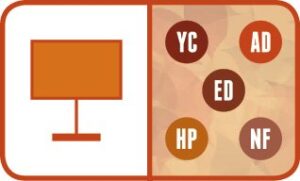 |
